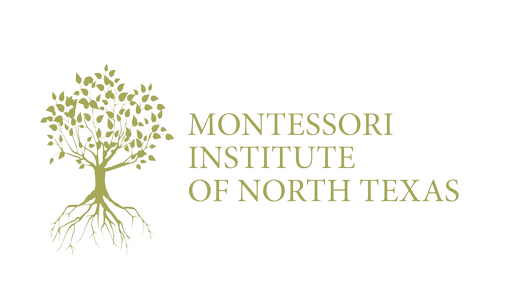The Family-Guide Connection Enhances Independent Learning
By Whitney Kalka
The old adage “it takes a village” could not be more clearly represented in the Montessori classroom. We see it especially in the mixed age groups in the Montessori environment. Eight-year-old Max and 6-year-old Elle have a fascination with Vikings? Great! They can dive into that research together. Five-year-old Charlotte needs help getting a knot out of her shoelaces? No problem! Tyrone has her covered. Bodhi needs help picking up the beads he just dropped and are under every shelf in the classroom… all of his peers rush to help. Children have an instinct to connect with and help those around them. This village of support is made possible by an observant and dedicated guide in addition to their thoughtfully designed prepared environment.
The parent and guide partnership is also a part of this great village which enriches independent learning in the Montessori environment. It has been my experience that communication, early and often, between families and guides can nurture a safe environment of support and accountability both at home and in the classroom. This partnership should be based on trust and respect with the common goal of the child’s best interests. Are things happening at home that could be impeding the child’s workflow and concentration?
Has the child finally mastered a challenging work or shown great social-emotional support to their peers in the classroom? Sharing these anecdotal stories can provide crucial information to provide a united front of support. This breadth of support will help the child to feel safe in their mistakes, encouraged during their struggles, and confident in their independence.
I am fortunate to have experience with Montessori from three vantage points: student, teacher, and parent. Not only was I a Montessori child myself, but I have been a Teaching Assistant in the Elementary classroom for eight years now and am in the process of attaining my AMI 6-12 diploma through MINT. I also have a daughter who has been in Montessori since she was 16 months old and is now in her final year of Primary. I can say with full confidence that the hardest role in that equation is the role of the parent.
It is truly difficult not to assist our children- whether it be for the sake of timeliness, or because they might be really struggling with a task at hand. This struggle, when allowed, is where true growth can take place. Giving the grace and time for exploration of doing things anew, and for themselves, is equally important at home as it is in the classroom. It takes a great deal of patience and practice to take a back seat and just observe a child’s repeated attempts to overcome a challenging task; however, it can be one of the greatest gifts that we can give.
The family-guide connection enhances independent learning in the Montessori classroom as well as at home. Communication between the family and guides lays the foundation to the path of true independence. I am eternally grateful for the partnership I have had with (and support from) all my child’s guides and teaching assistants throughout my journey as a Montessori parent.
“The child who has never learned to work by himself, to set goals for his own acts, or to be the master of his own force of will is recognizable in the adult who lets others guide his will and feels a constant need for approval of others.”
— Maria Montessori, Education and Peace
© 2021 Whitney Kalka
Whitney Kalka, MINT 6-12 Trainee
Whitney graduated from the University of Texas at Dallas with a BA in Psychology and has been teaching in the elementary division at Alcuin School for 8 years. She attended White Rock Montessori School in Dallas as a child where she met her husband of 11 years. They currently live in east Dallas with their 5-year-old daughter who is in her last Primary year at Alcuin. Whitney is excitedly (and anxiously) approaching her last summer of 6-12 training at MINT.


